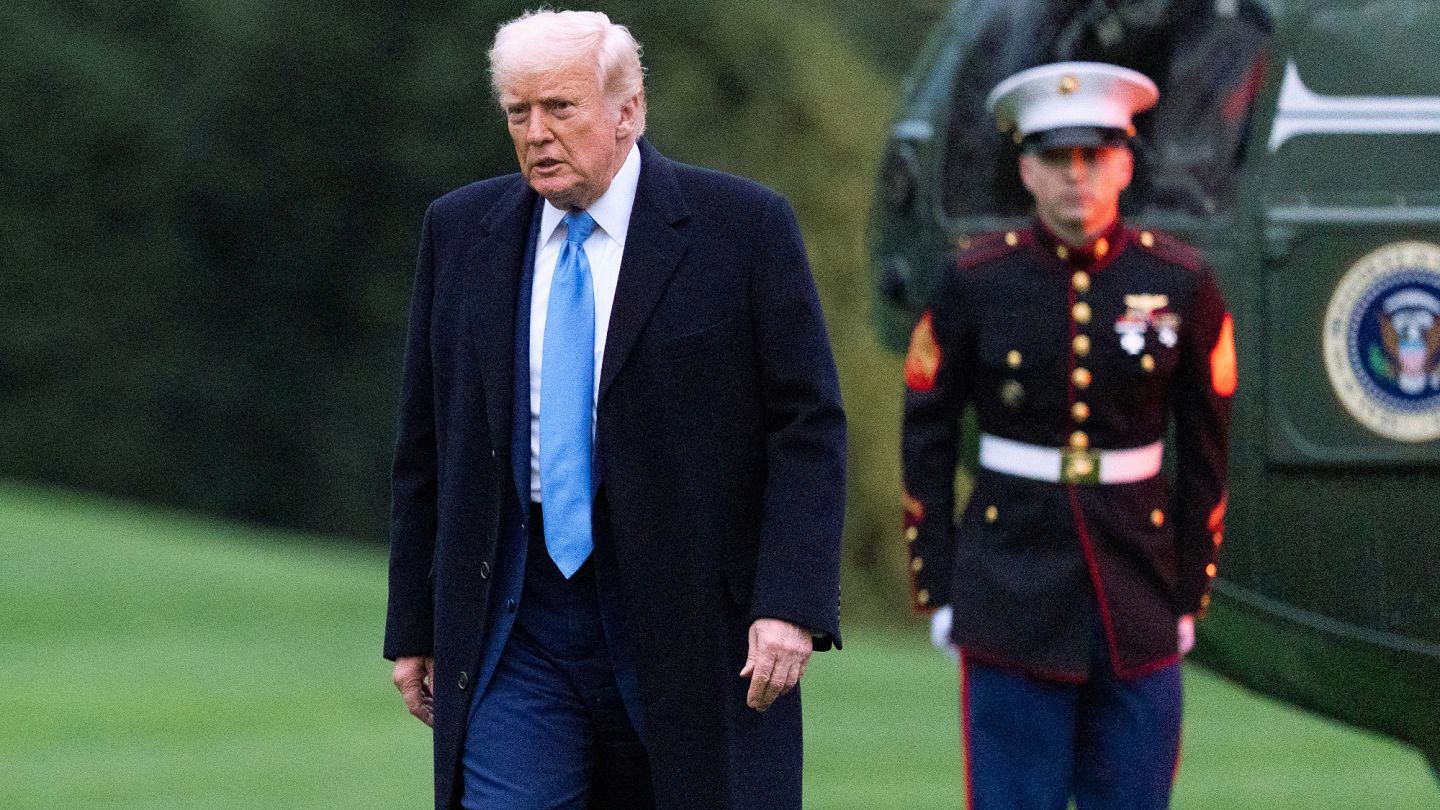Trump: I have no intention of fueling market chaos; the trade deficit target remains fixed.
U.S. President Donald Trump reiterated the commitment to eliminate trade deficits, particularly with China, while denying any intention to fuel market chaos. Following these statements, global stock markets deepened their losses during Monday's Asian session.
While insisting that he did not intentionally trigger heavy market sell-offs, Trump again affirmed the goal of eliminating the U.S. trade deficit. Global stock markets have fallen since Trump announced higher-than-expected reciprocal tariffs last week, wiping out trillions on Wall Street. On Friday, China retaliated with counter tariffs, applying a 34% import tax on all U.S. goods, marking a significant escalation in the global trade war. In comments made aboard Air Force One over the weekend, Trump said, "I don't want anything to go wrong, but sometimes you have to take medicine to fix something." He continued, "We must solve our trade deficit with China. We have a trillion-dollar trade deficit with China, losing hundreds of billions of dollars a year. I will not make a deal until we solve this problem." Trump also demanded financial compensation from Europe: "We put a large tariff on Europe. They come to the table wanting to talk, but no talks unless they pay us a lot of money on an annual basis - not just for today, but also for the past." Last week, the U.S. president indicated he was open to negotiations if other countries offered "extraordinary" proposals.
Losses in Asian markets Asian stocks and U.S. stock futures continued to extend their losses during Monday's Asian session as the escalating global trade war kept investor sentiment under pressure. Hong Kong's Hang Seng Index opened nearly 10% lower upon returning from the official holiday last Friday, erasing all gains made since February. Chinese stocks had shown strong gains earlier this year, buoyed by DeepSeek's launch of a lower-cost AI model and promises of more incentives from Beijing. Before Trump's announcement of reciprocal tariffs, the Hang Seng Index had risen 24% from early 2025 to its peak on March 19. Following sharp sell-offs, the index is currently up only 3.2% year-to-date. Japan's Nikkei 225 benchmark index fell 6% in early trading, triggering a circuit breaker and dropping to its lowest level in 18 months. The index has now declined over 20% from its highest level in January, entering bear market territory. South Korea's Kospi index lost more than 4%, while Australia's ASX 200 index fell by about 4%. Although these three indices later recovered somewhat, they remained in negative territory throughout the day. Capital.com senior market analyst Kyle Rodda stated, "There could be big rallies with positive headlines this week. However, it won't be a sustainable move until Trump shows he has no intention of raising tariffs further and is open to negotiating lower tariffs with trading partners... It's just that simple, really."
U.S. futures drop, likely reflecting in European markets U.S. stock futures also deepened their declines, indicating a sharp drop on Monday. As of 04:45 Central European Time, S&P 500 futures were down 3.5%, Nasdaq futures were down 4.5%, and Dow Jones Industrial Average futures were down 2.9%. Meanwhile, the CBOE Volatility Index (VIX), often referred to as Wall Street's "fear gauge," rose 51% last week, surpassing 45, a level not seen since 2020 and only briefly touched in August. EU leaders are preparing to take measures against Trump's comprehensive tariffs, and the sharp wave of selling in the U.S. is expected to spill over into European markets. Michale Brown, a senior research analyst at Pepperstone in London, commented, "This morning's note will be disheartening. At this point, I'm quickly running out of adjectives to describe how bleak sentiment has become and how harsh the economic outlook appears. Additionally, both are likely to worsen significantly before any improvement." European indices also fell last week; Euro Stoxx 600 dropped 7.4%, Germany's DAX fell 6.9%, and France's CAC 40 lost 7.1%.
Investors seek safe haven assets Amid the market turbulence, investors turned to traditional safe-haven assets, leading to rises in the Euro, Japanese Yen, Swiss Franc, and government bonds. The Euro briefly exceeded 1.10 against the U.S. dollar last week, reaching its highest level in six months. The EUR/USD pair stabilized above 1.09 during Monday's Asian session following Friday's pullback. Meanwhile, both the Yen and Swiss Franc reached their highest levels against the dollar since October 2024. U.S. Treasury bonds saw a sharp rise as yields fell, with the 10-year Treasury yield dropping below 4% for the first time since October 2024. In Europe, Germany's 10-year bond yields also fell to their lowest level in four months. However, gold futures declined in early Monday trading as investors sold the metal to offset stock losses, widening losses from last week's all-time highs. Despite the pullback, analysts expect gold to remain the best-performing safe-haven asset in the current environment.


